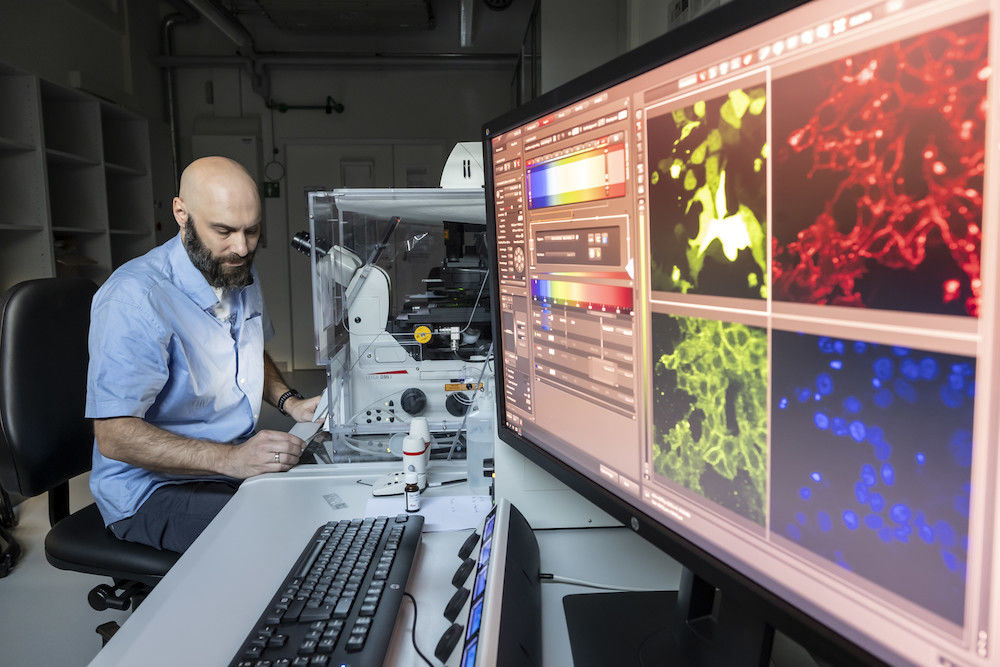Searching for the tumour protein

It has a somewhat cumbersome name: protein IGF2BP1. Yet, it plays a key role in the body’s development, ensuring that embryonic cells grow quickly, are able to divide and mobile. “These properties are vital for embryos,” says Stefan Hüttelmaier. The professor of molecular cell biology heads up one of the 14 research groups at the new Charles Tanford Protein Centre.
The protein in question is no longer present in the adult body - except in cancer cells. “In earlier studies, we found IGF2BP1 in the cells of liver, skin, ovarian and thyroid cancer,” explains Hüttelmaier. It is not completely clear why the cells start producing the protein again. Only this much is known: “IGF2BP1 is mainly found in malignant tumours, which have the ability to form metastases in other areas of the body.” Like embryos, the protein ensures that cancer cells grow and multiply rapidly.
Since the protein only occurs in tumour cells and metastases, it is the perfect target for a precision attack: “We want to develop a substance that specifically blocks the function of IGF2BP1,” explains Hüttelmaier. The researchers are looking for specific sites in the protein’s structure that are susceptible to external attacks. For these special sections of the structure they are developing a substance that only binds to these sites. When the molecular key docks at the desired site, the protein switches off. The idea is that a non-functioning IGF2BP1 protein leads to fewer new tumour cells or no tumour cells at all. This approach also ensures that the substances fighting the cancer cells only work at that location.
In order to create this special substance, Hüttelmaier and his research group have to carefully study and have an extremely precise understanding of the structure and function of IGF2BP1. Since moving to the Protein Centre, they have also received support from Professor Andrea Sinz and Professor Milton Stubbs. Both professors are experts in researching protein structures and have also moved to the new building with their research groups. “This opens up completely new possibilities for interdisciplinary cooperation,” says Hüttelmaier, referring not only to the short distances, but also to the ability to exchange experience easier and, ultimately, to the shorter time needed for experiments.
The research group in Halle has already found its first candidates for new substances. “Currently we are working to prove that the substances not only work in the test tube, but also in cells and later in the body,” says Hüttelmaier. This will be followed by many more studies and by several years of developing the specific drug, which will have to be conducted by industry. But even a suitable, tailor-made substance would be a big step forward for cancer research.
Professor Stefan Hüttelmaier
Institute of Molecular Medicine
phone: +49 345 557-3959
email: stefan.huettelmaier@medizin.uni-halle.de
